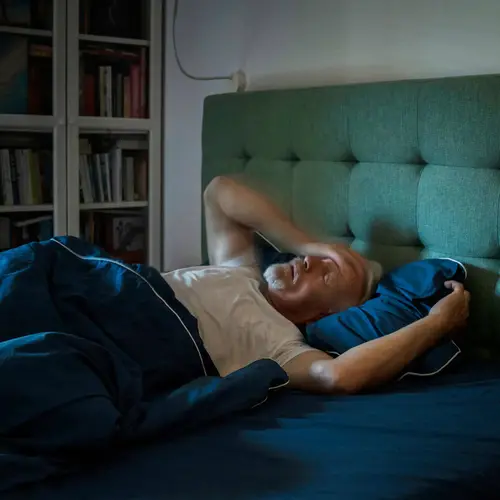Have you ever woken up to bright morning skies feeling energized? A big reason for your mood is the high-intensity blue light coming from the sun. Among the visible light spectrum, blue wavelengths have the most powerful effect on your sleep-wake internal body clock.
Both natural and artificial blue light can boost your alertness and mental sharpness. But too much of it may keep you awake when your body needs to wind down.
How Blue Light Hurts Sleep
Your eyes aren’t good at blocking blue light. So almost all of it passes straight through to the back of your retina, which helps your brain translate light into images.
Exposure to all colors of light helps control your natural sleep-and-wake cycle, or circadian rhythm. More so than any other color, blue light messes with your body’s ability to prepare for sleep because it blocks a hormone called melatonin that makes you sleepy.
Bottom line: You’re less drowsy than usual at night, and it takes you longer to fall asleep.
Blue Light Sources
Americans spend an average of 7 hours a day on electronic devices. That’s a lot of time staring at blue light. Worse yet, nine out of 10 Americans admit to reaching for an electronic device at least several nights each week shortly before bedtime. That could be an invitation for insomnia.
The light from your devices often appears white. But they can give off wavelengths in the range of 400 to 490 nanometers, which is blue light.
Indoor sources of blue light include:
- Televisions
- Smartphones
- Tablets
- Gaming systems
- Fluorescent light bulbs
- LED (light-emitting diode) bulbs
- Computer monitors
Ways to Manage Blue Light
The simplest way to lower your exposure to artificial blue light is to turn off your smartphone, TV, and other gadgets well before bedtime. Other ways include:
Blue light-blocking glasses. They’re widely sold online. Amber or brown-tinted lenses may help best.
Cut back on screen time starting 2-3 hours before bed.
Dim the brightness on your devices. This is often called night mode or dark mode. It changes the background from white to black.
Install blue light-filtering apps on smartphone, tablet, and computer screens. They filter a lot of blue light from reaching your eyes without making it harder to see the display.
Swap light bulbs. LEDs give off more blue light than fluorescent bulbs. And both emit more blue light than energy-hungry incandescent bulbs, which are being phased out.
Use a dim red lightbulb as a nightlight. Red is the color that least affects your circadian rhythm.
Set an alarm for 1 hour before bed to remind yourself to quit using devices.

